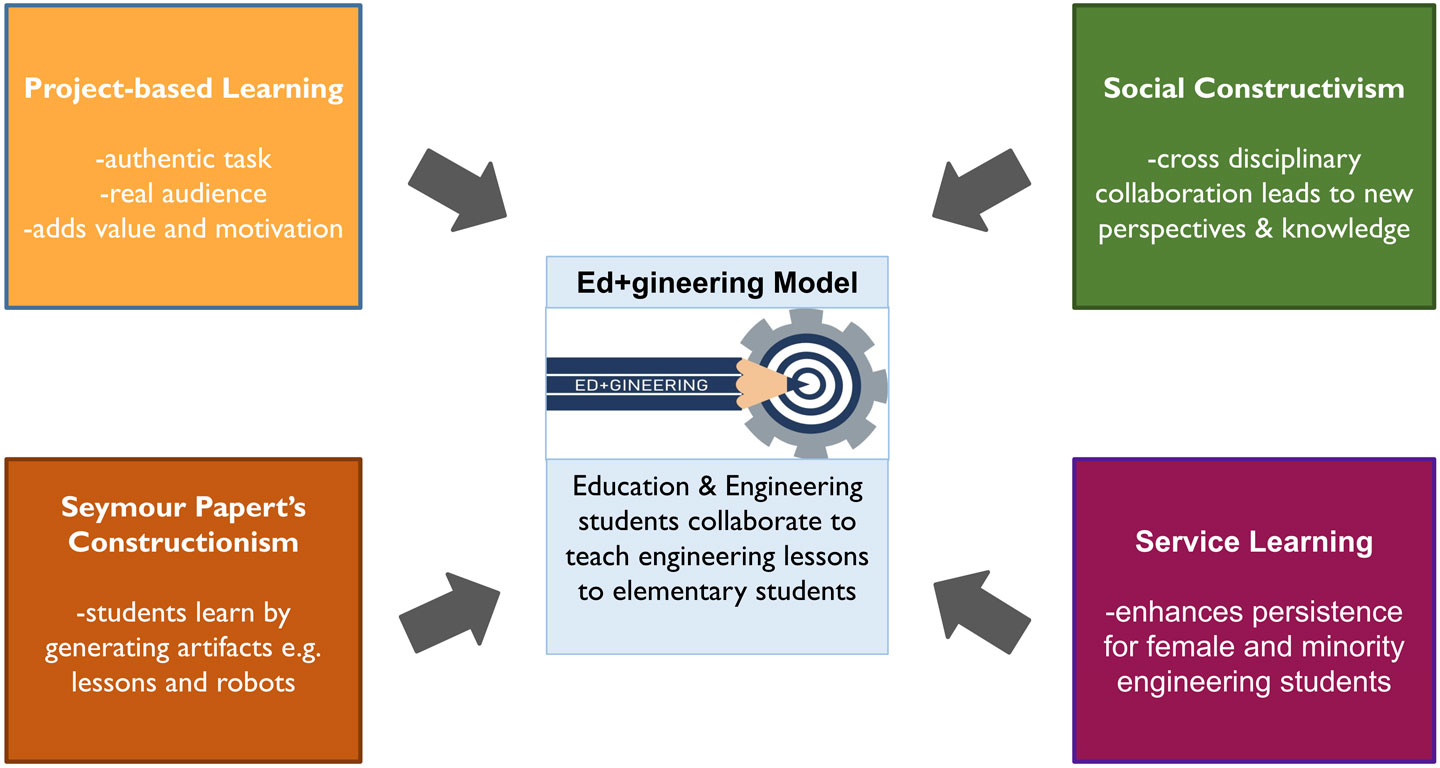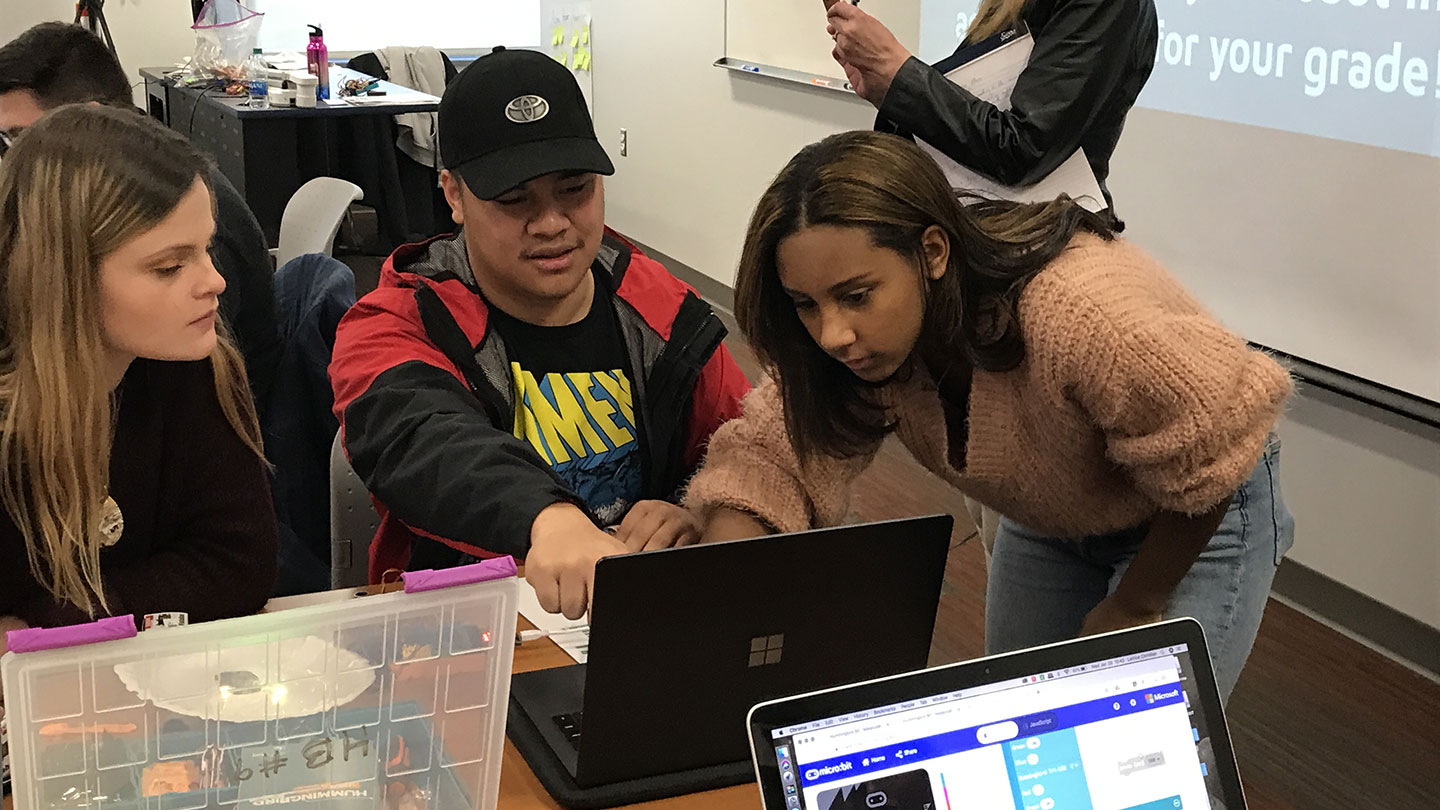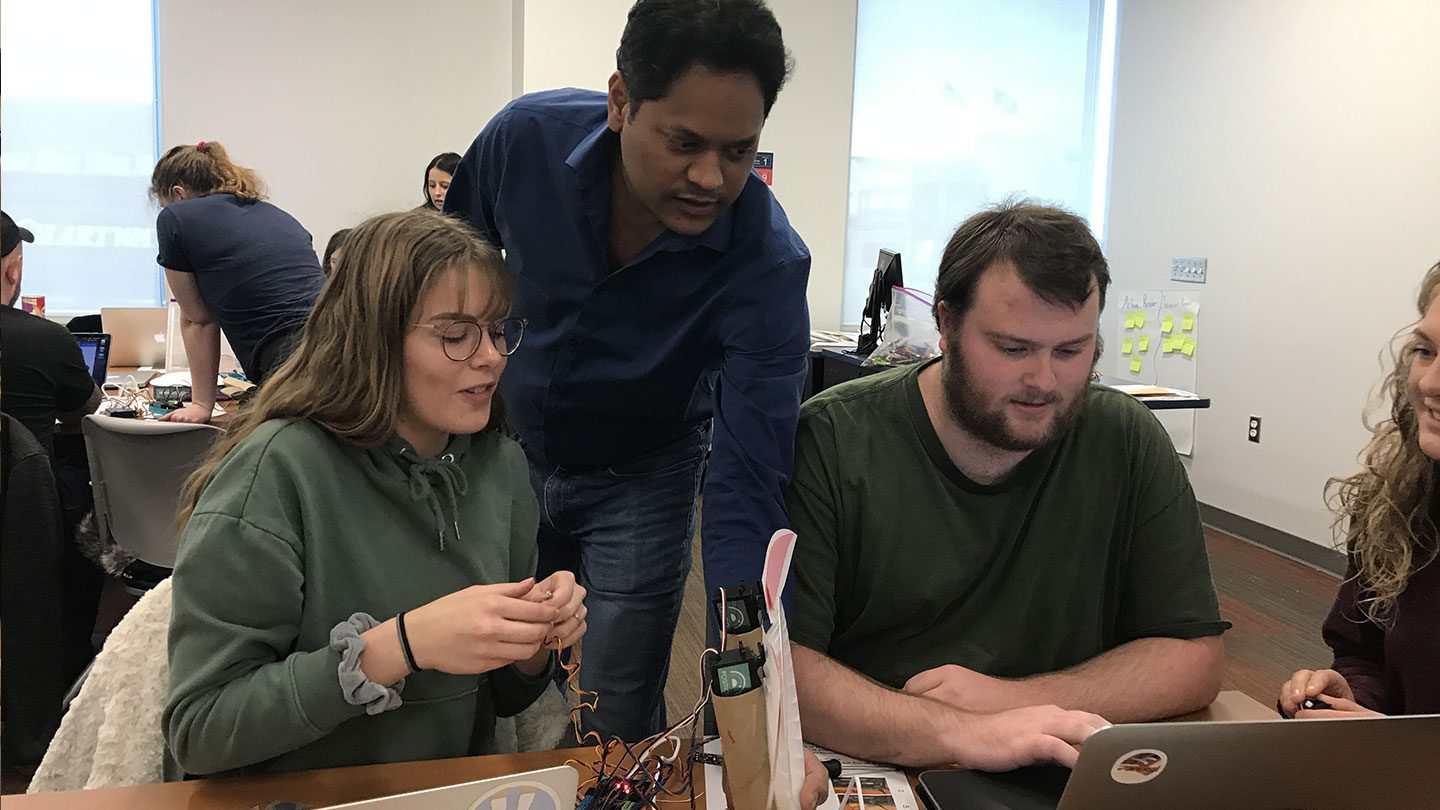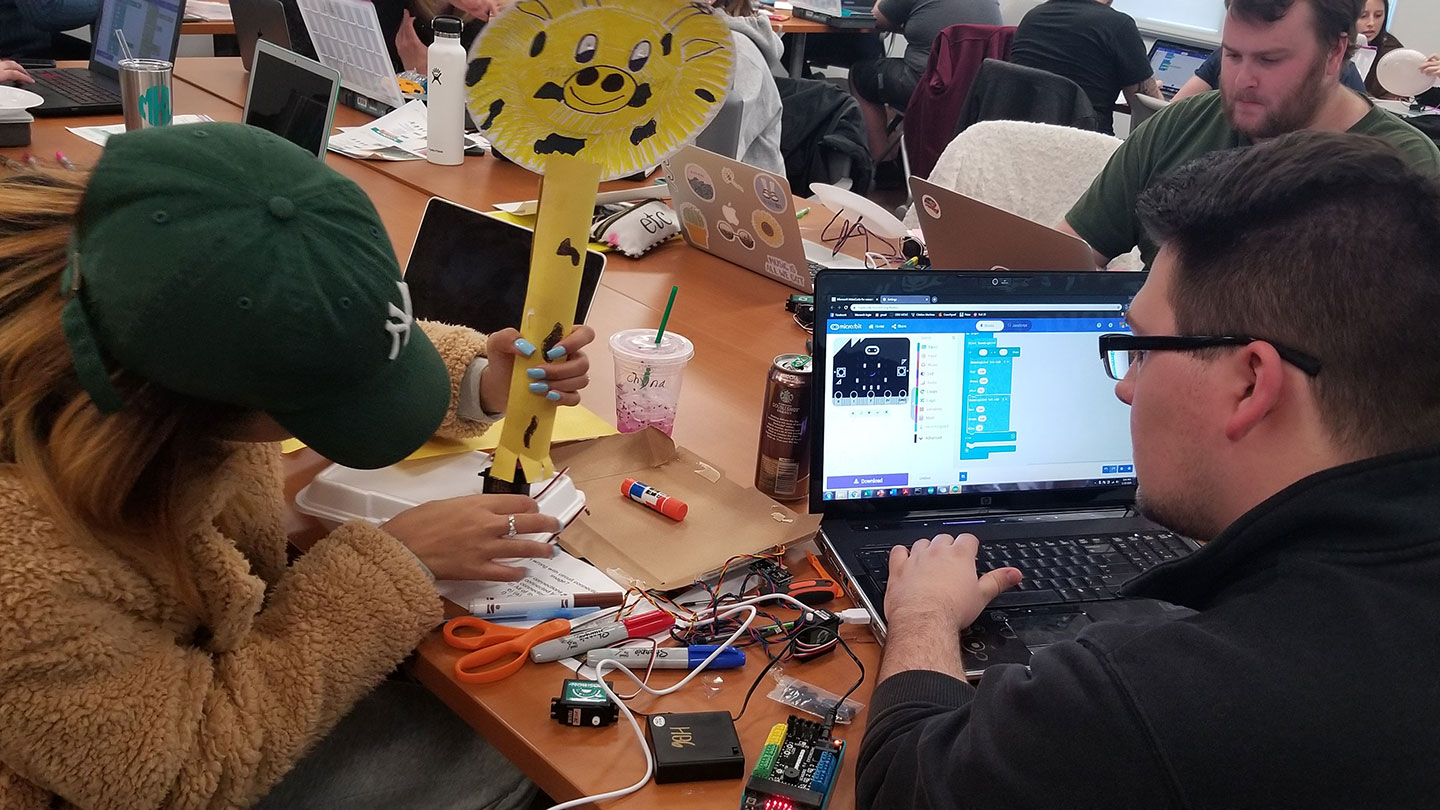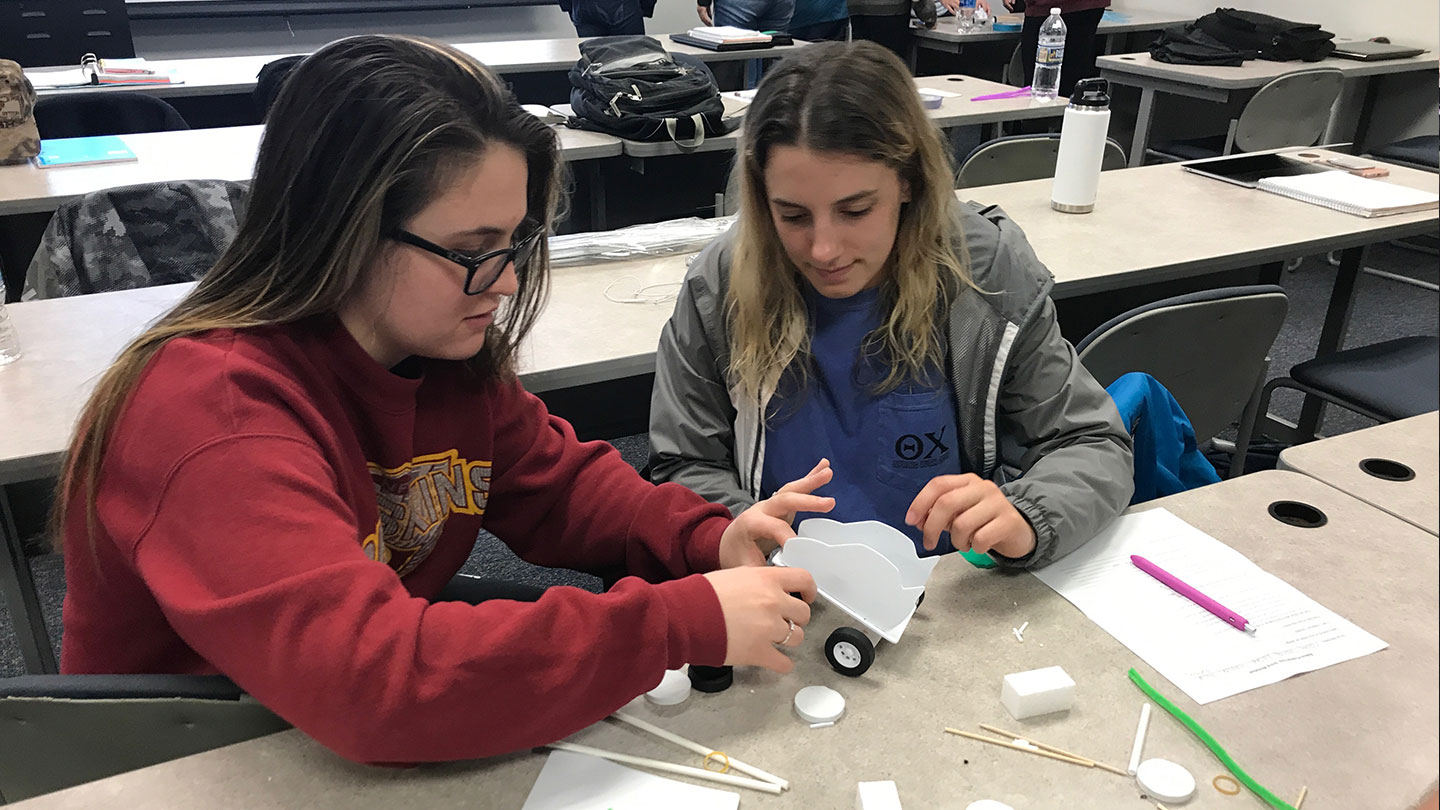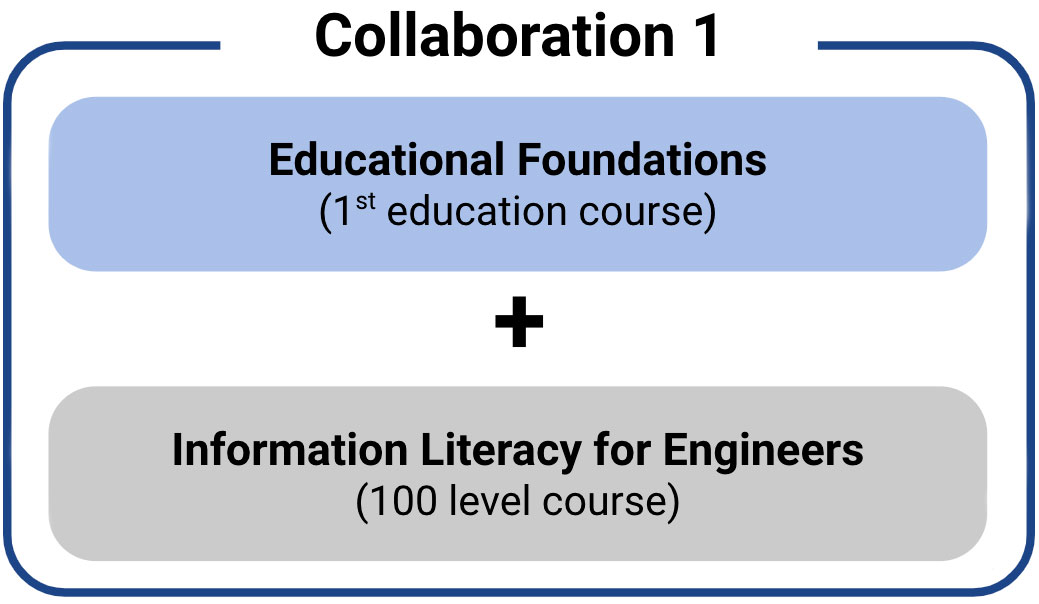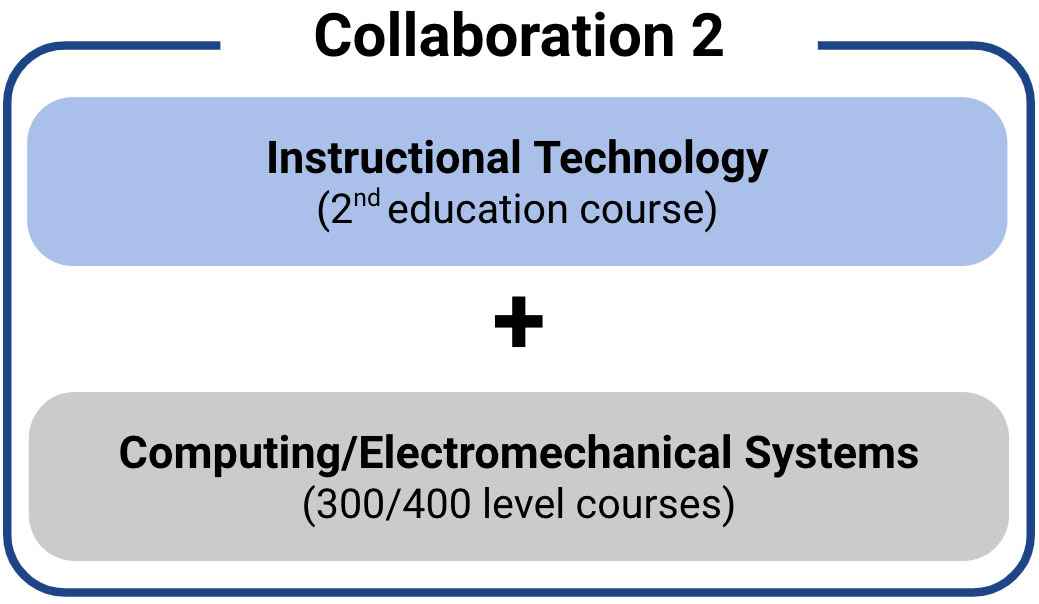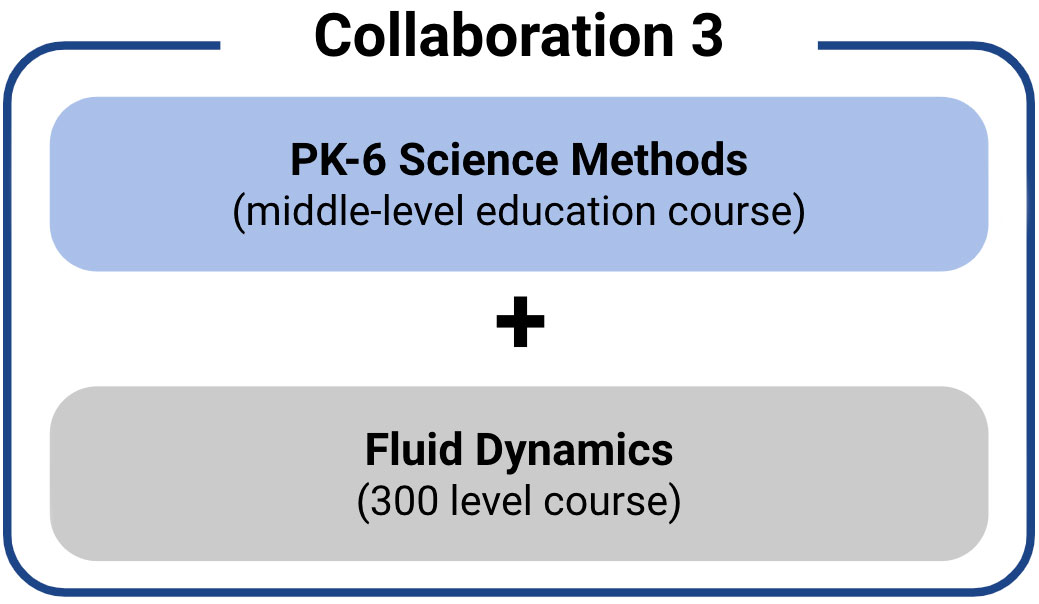Ed+gineering addresses two compelling needs:
- Prepare elementary teachers to competently and confidently integrate engineering into preK-6 instruction
- Prepare engineers for workplace demands of collaborating and communicating in multi-disciplinary contexts
Prepare Future Teachers
Engineering practices are included in the NGSS and state science standards. However, most preK-6 teachers are not exposed to engineering in their professional preparation.
Prepare Future Engineers
The solutions to today’s most challenging engineering problems require expertise from multiple fields. Standards issued by the Accreditation Board for Engineering and Technology (ABET) include technical expertise and the ability to function effectively on teams and communicate with a range of audiences.
Goals:
- Enhance PSTs’ ability and intention to integrate engineering into their instruction.
- Enhance engineering knowledge for both engineering and education students
- Enhance professional skills for engineering and education students
- Increase persistence for engineering students, especially female and minority students
Ed+gineering is funded by two National Science Foundation grants:
- A Service-Learning Partnership to Enhance Engineering Education and Elementary Pre-service Teacher Education for Undergraduate Students (#1821658), funded under IUSE (Improving Undergraduate STEM Education), You can view this project here.
- Ed+gineering: An Interdisciplinary Partnership IntegratingEngineering into Elementary Teacher Preparation Programs (#1908743), funded through DRK-12 (Discovery Research K-12). You can view this project here.
Ed+gineering brings education and engineering students together for three collaborations within their respective preparation programs. The students learn from and with each other, as they plan and deliver engineering lessons to 4th and 5th graders.
Collaborations 1 & 3 use a “field trip” model to deliver the lesson. Local elementary school students from Title I schools travel to the Old Dominion University campus for an “Engineering Day” experience that includes:
- A tour of a residence hall and student recreation center
- Tours of various Engineering labs (e.g. Motor Sports, Manufacturing)
- Lunch at the Broderick Dining Commons
- A 1-hour engineering lesson taught by collaborating education and engineering students
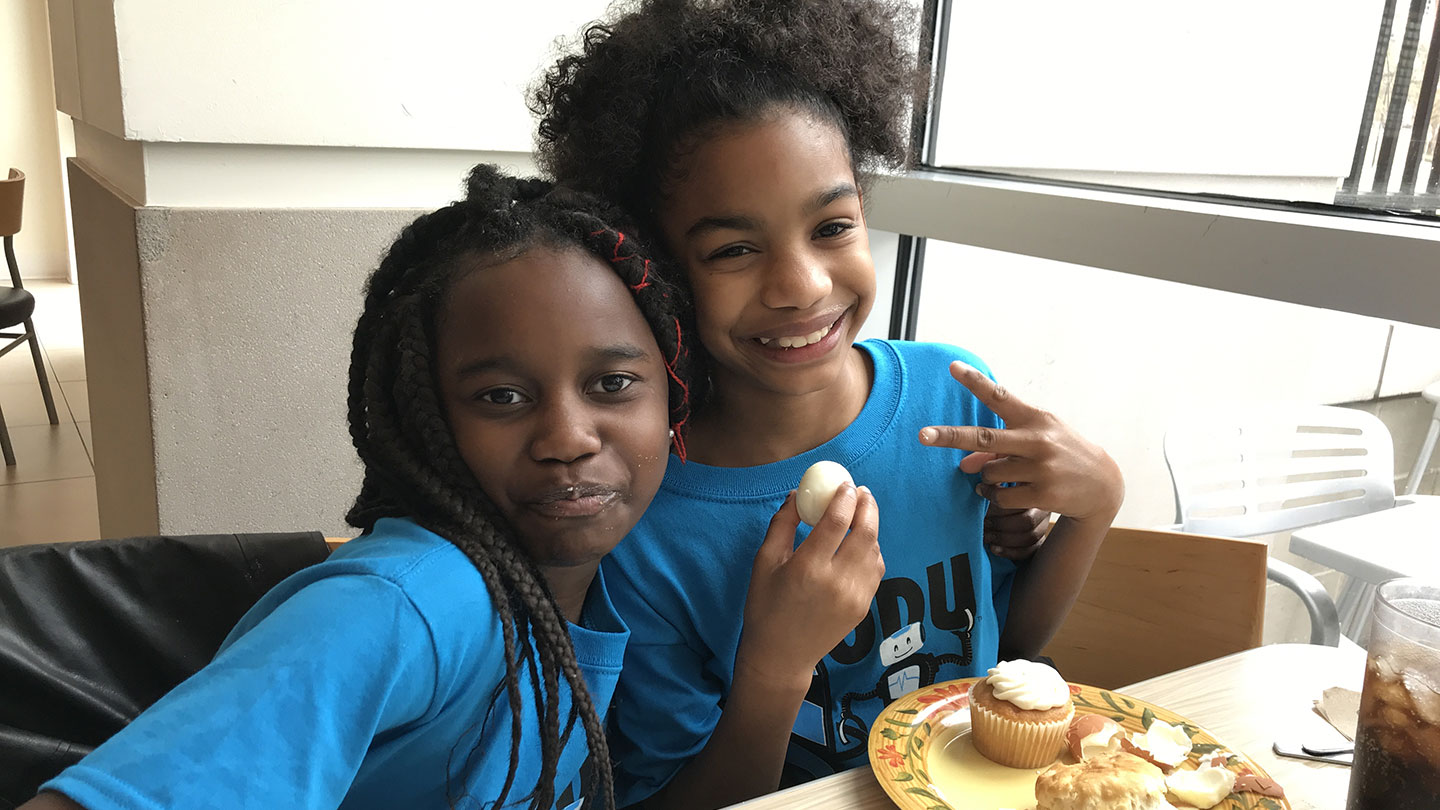
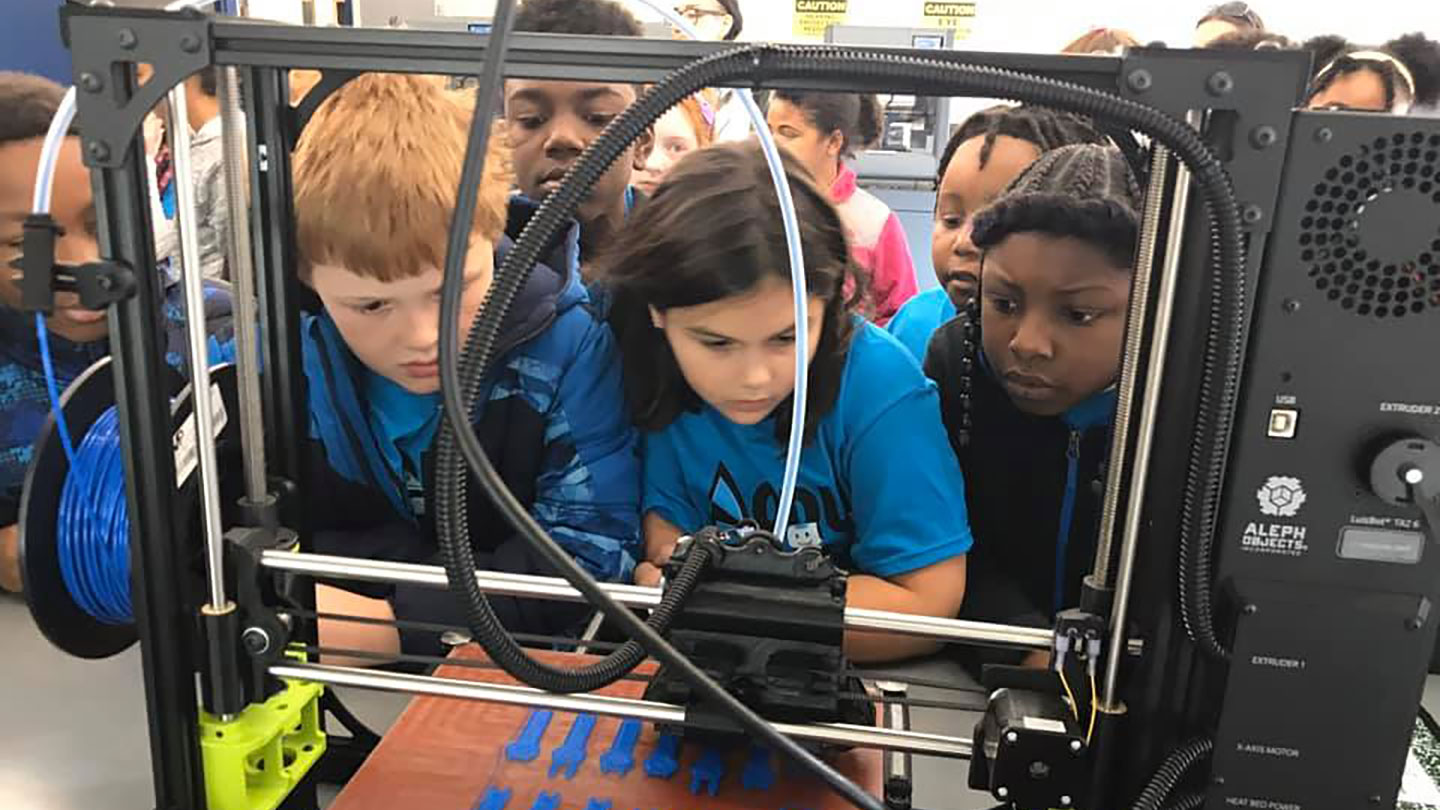
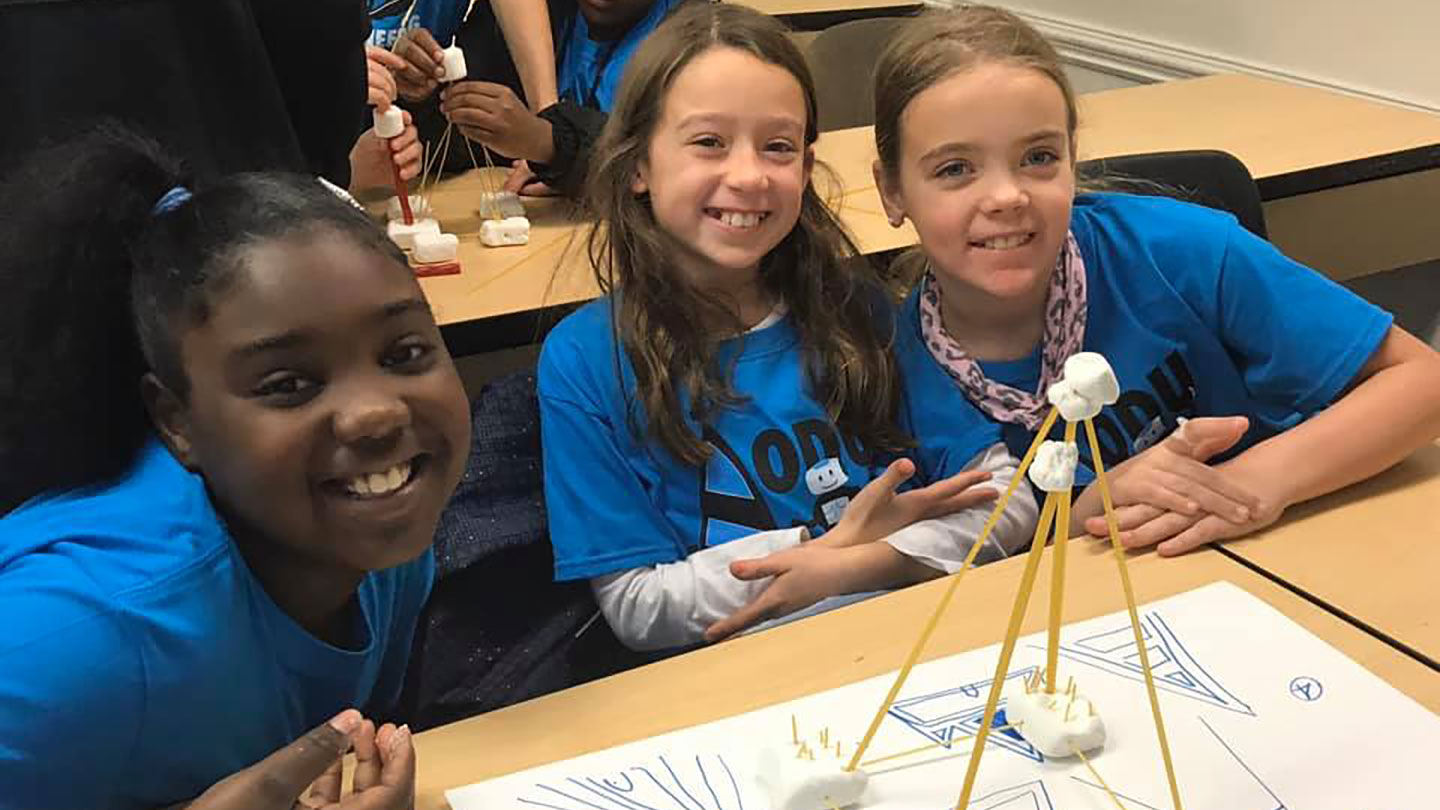
Collaboration 2 occurs in the context of an after-school technology club for 5th graders held at a public school in Norfolk. Small teams of one PST, one engineering student, and one 5th grader, work over the course of five weeks to design, build, and code bio-inspired robots.
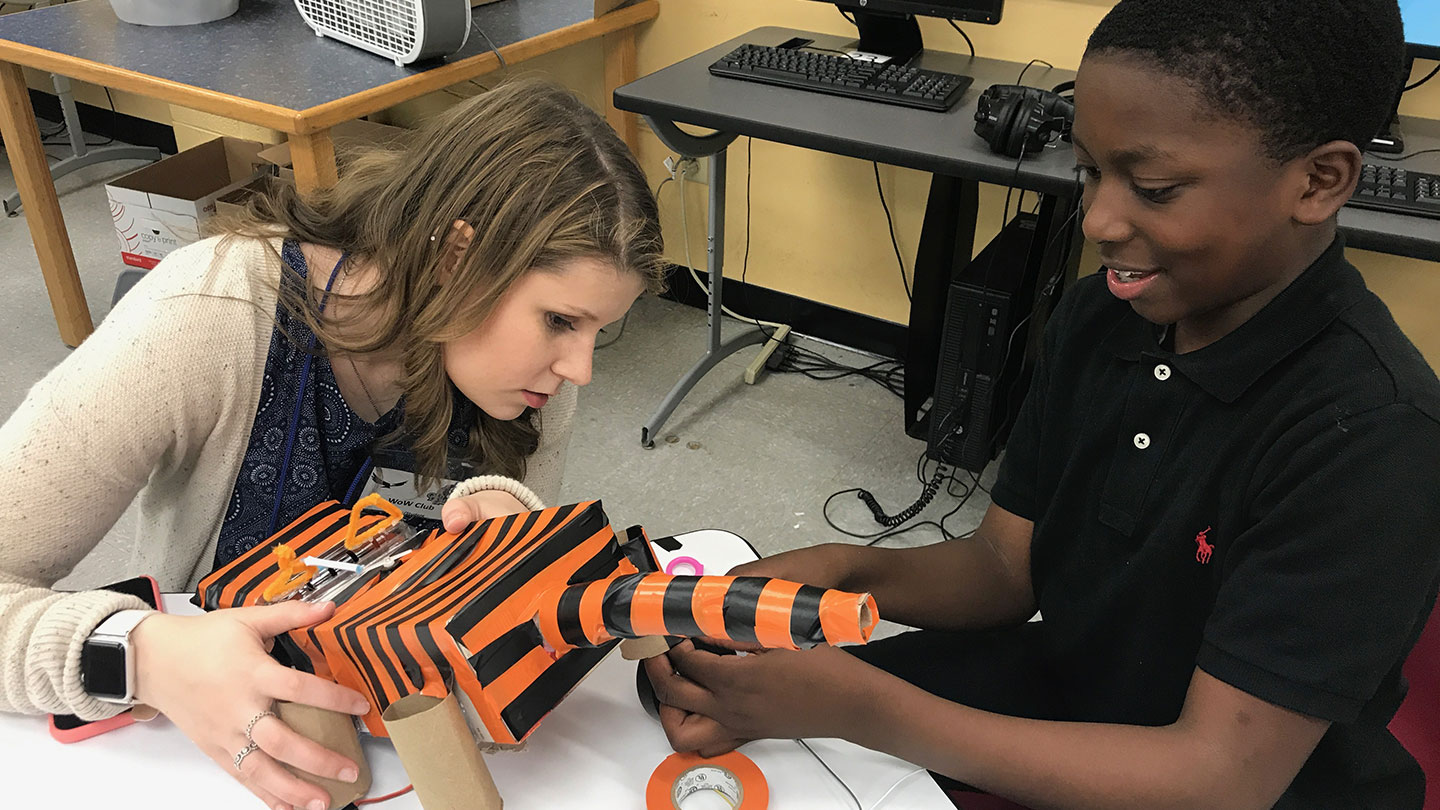
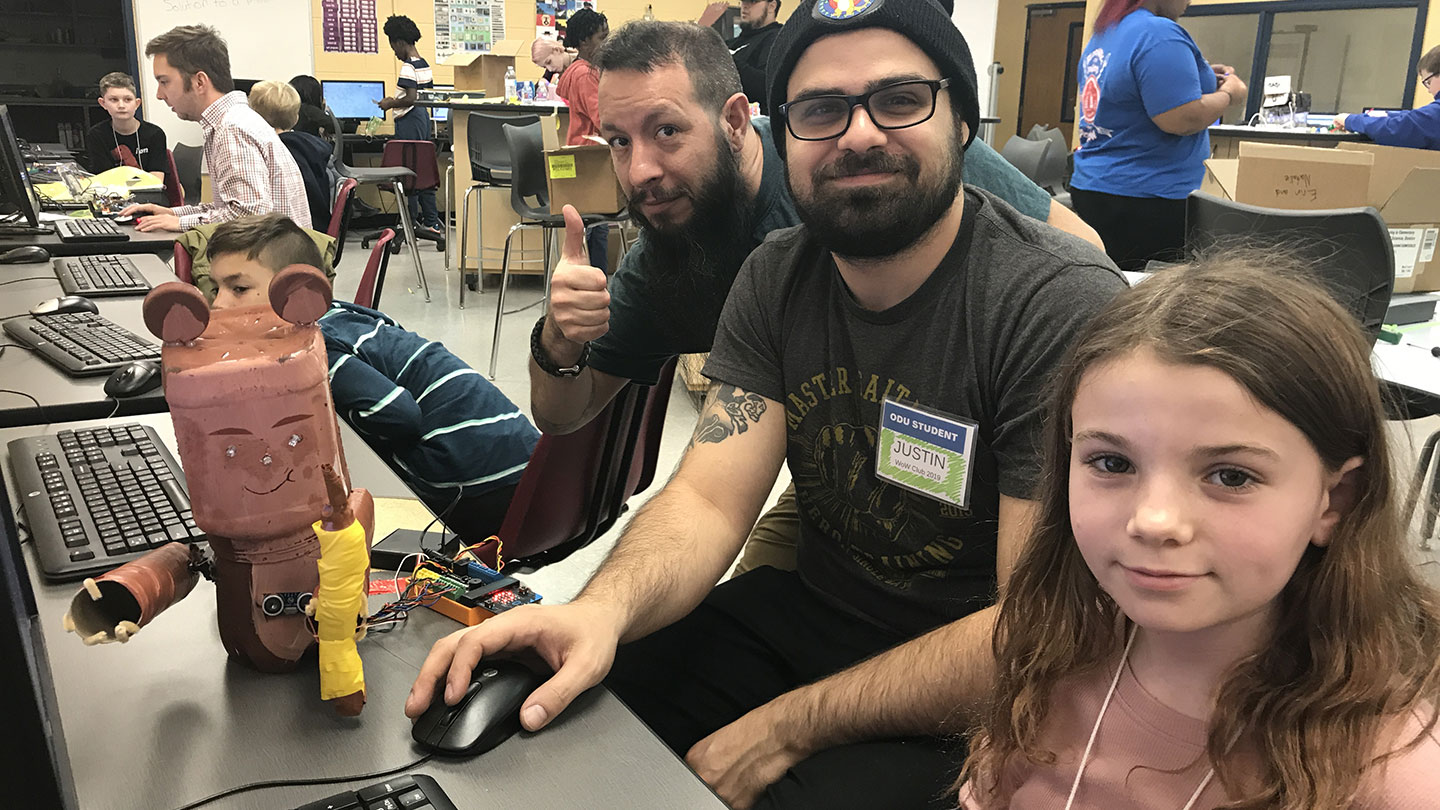
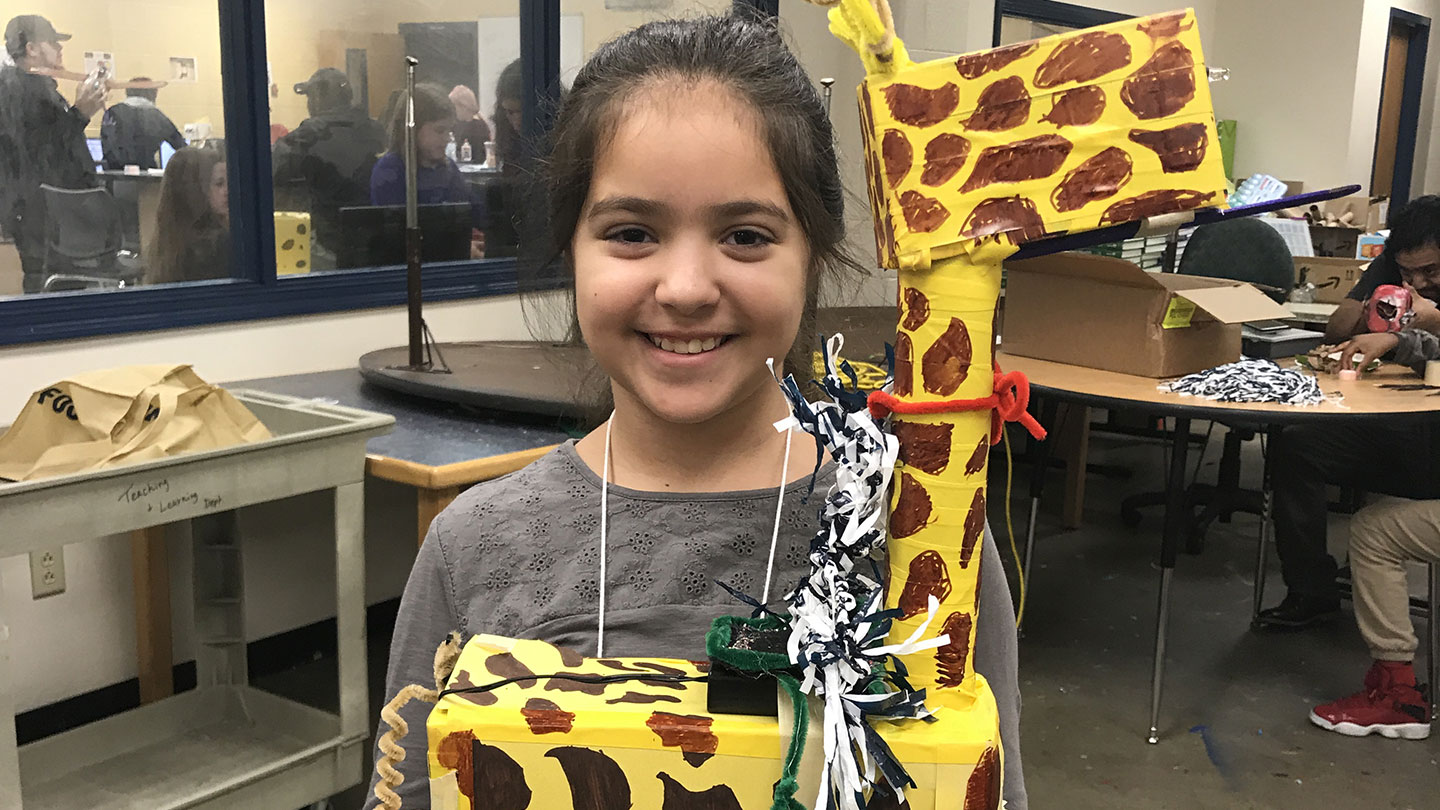
Collaboration 3 undergraduate teams travel to the local participating schools at the beginning of the semester to teach an introduction to engineering lesson and begin developing relationships with their assigned classes.
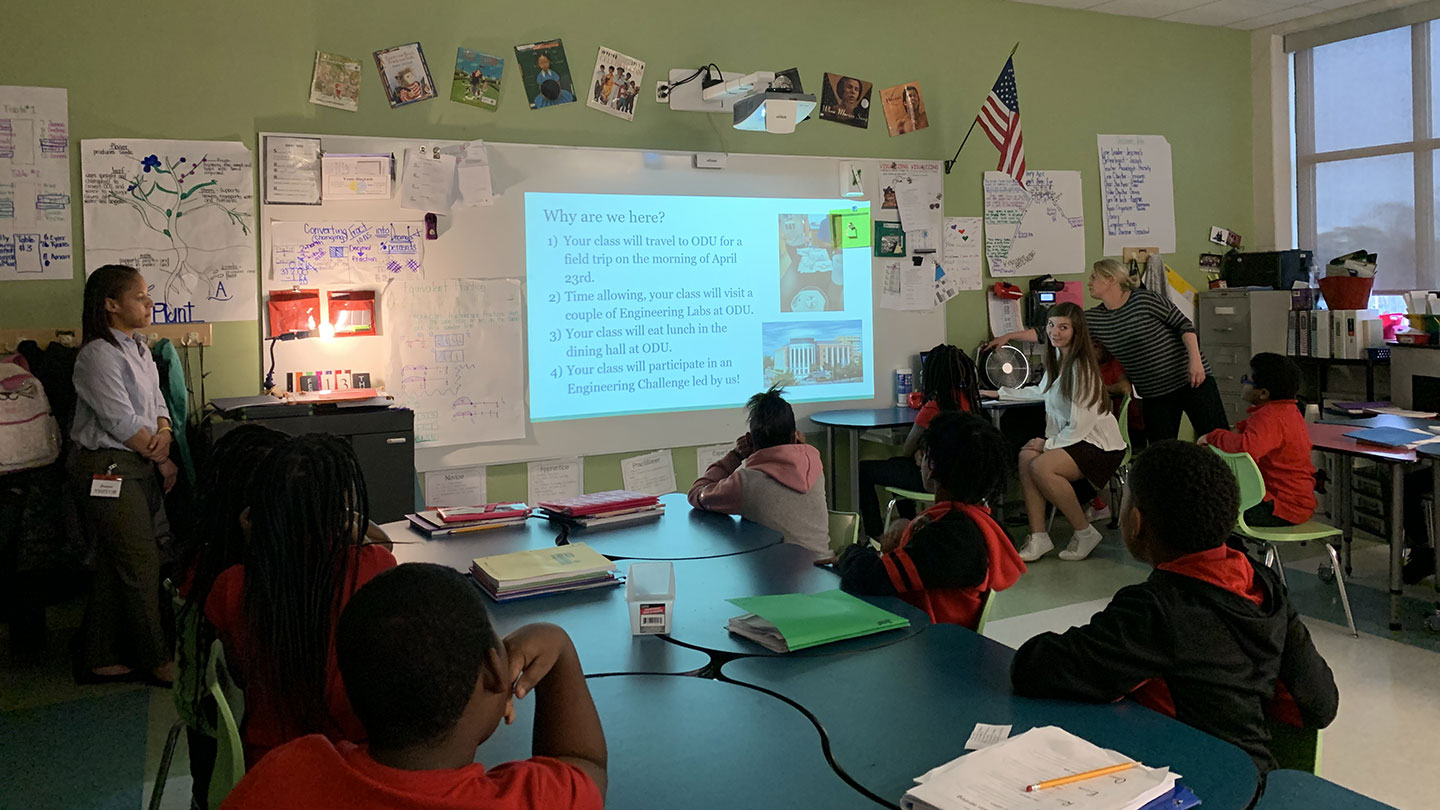
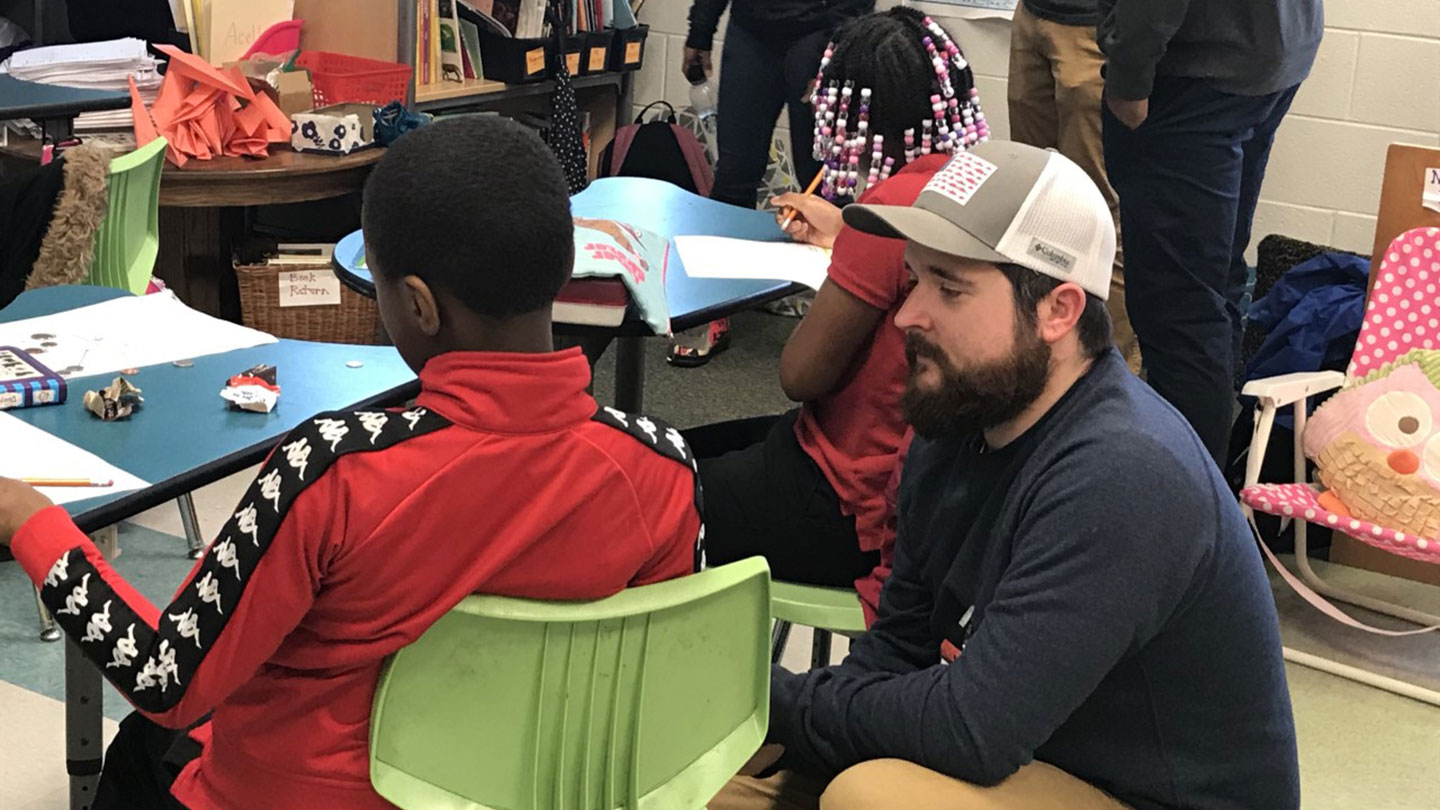
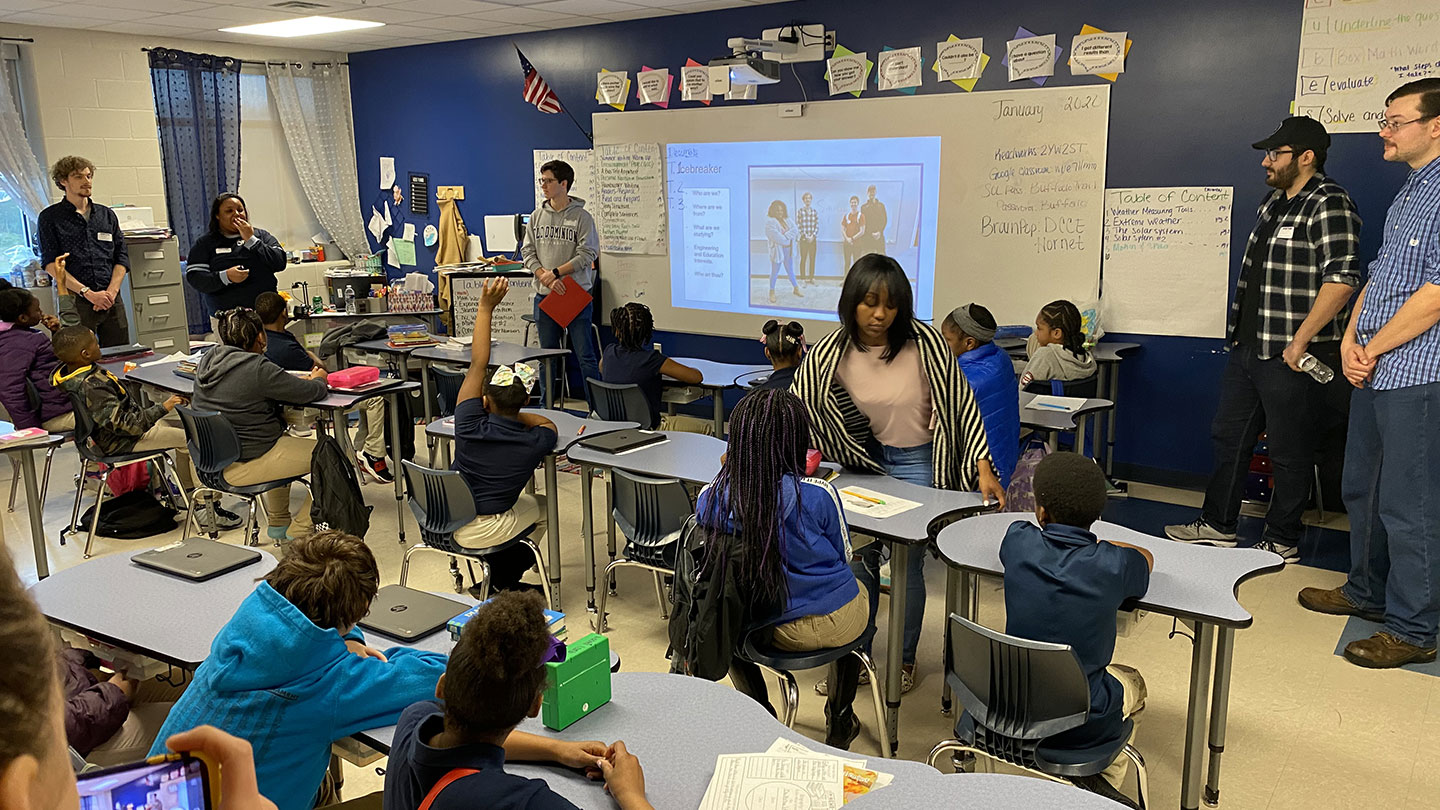
Ed+gineering leverages proven pedagogical strategies, like project-based learning, service learning, and peer learning, based on widely supported learning theories, such as constructivism and constructionism.
